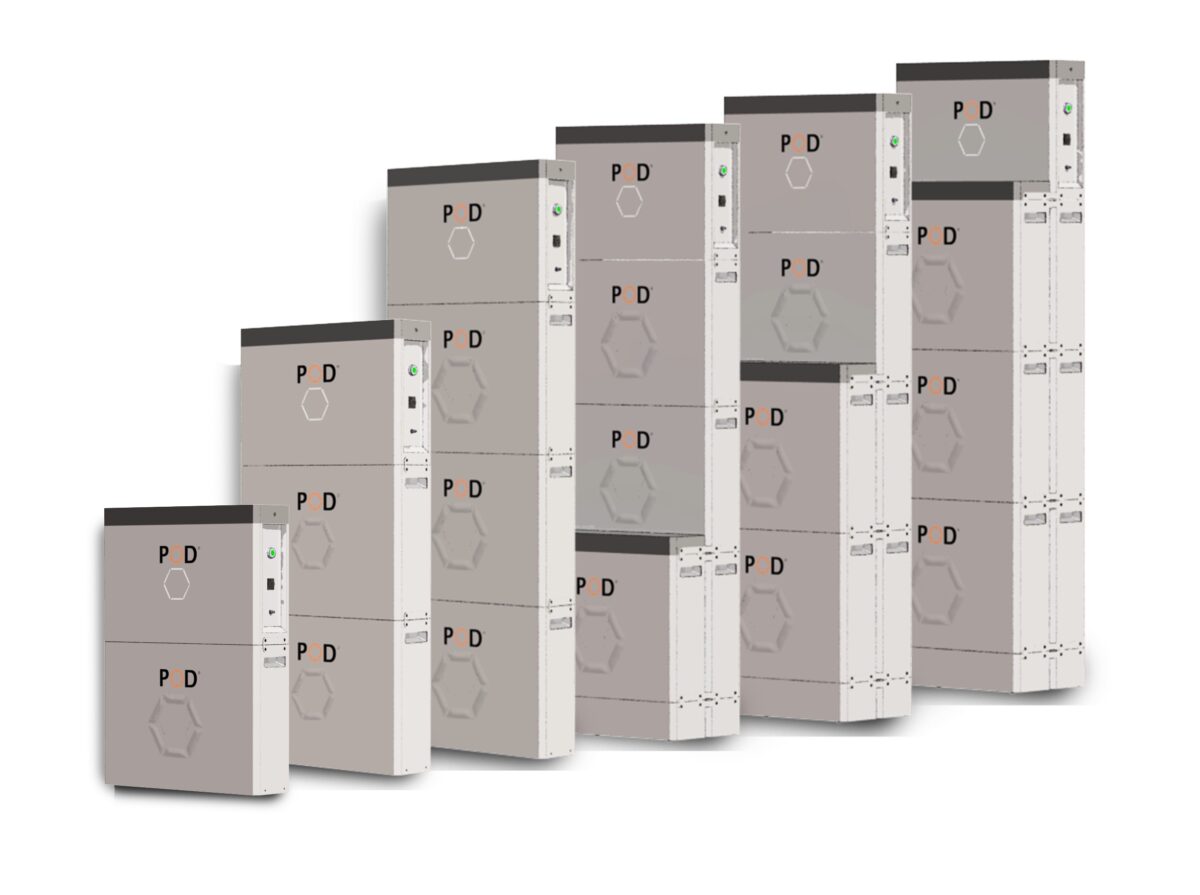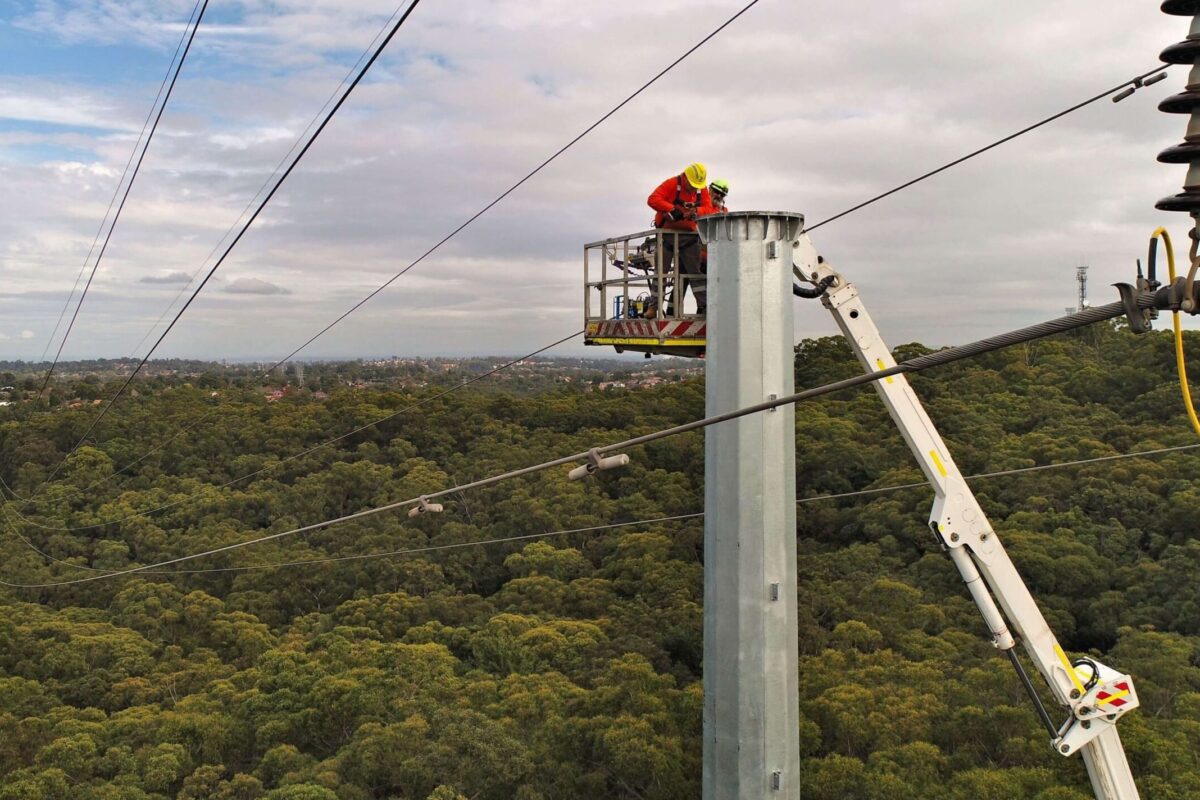Brisbane-headquartered manufacturer PowerCap has officially launched into the European market with its sodium-ion battery technology. Already enjoying strong sales growth in Australia, the technology is now being made available to European homes, businesses, and industries.
Dane El Safty, founder and Chief Executive Officer of PowerCap, said the expansion comes at a time when European markets are actively seeking proven and scalable alternatives to lithium-based storage.
“Europe has some of the most ambitious renewable energy targets in the world and we are proud to make our technology available to support this transition,” he said.
The PowerCap POD range has applications across residential, commercial, industrial, grid stabilisation, virtual power plants (VPP), micro-grids and off-grid systems. Certified by TÜV to international standards, the systems feature in-house battery management system (BMS) and energy management system (EMS) technology to ensure performance for more than 15 years – covered by a warranty.
The residential storage model comes with scalable capacity from 10.30 kWh to 27.46 kWh, featuring from three to eight battery units in parallel. The product has a cycle life of up to 8,000 charge-discharge cycles at 25 degrees Celsius at up to 0.5C rate with an energy retention rate of more than 70%.
The product’s operating temperature range while charging spans from 0 to 55 degrees Celsius, and during discharging from -20 to 60 degrees Celsius. It is IP65 rated and has natural cooling.
The residential product is compatible with the following inverters: Sungrow SH5, GoodWe EH, GoodWe ET 5, Sofar HYD.
PowerCap’s C&I battery is modular from 53.76 kWh to 115.20 kWh, featuring from seven to 15 battery packs. It offers 6,000 charge-discharge cycles at 25 degrees Celsius at up to 0.5C rate with the energy retention rate of more than 80% – and 10000 cycles with the energy retention rate of more than 70%.
The product’s operating temperature range while charging spans from 0 to 55 degrees Celsius, and during discharging from -40 to 60 degrees Celsius. It is IP20 rated and features fan cooling.
The commercial battery pairs with DEYE, Sinexcel, GoodWE inverters.
According to PowerCap, all of its products are designed to be 100% recyclable at the end of their service life.
Why sodium-ion?
Sodium-ion battery technology is often touted as a safer and more environmentally freindly alternative to lithium ion technology. Yet, despite its potential, the technology has not broken into the mainstream.
“The main barrier to sodium-ion batteries going mainstream is the Battery Management System (BMS) and compatibility with inverters,” Chris Dryden, general manager of product development and manufacturing at PowerCap, said. “Over the past two years, we’ve developed our own BMS and energy management system to address this, as these systems are critical for safe, efficient and reliable operation.”
Despite ongoing improvements to lithium-ion technology – particularly in cost, energy density, and safety – interest in sodium-ion batteries remains strong.
“Interest in our products has been strong, particularly in Australia where we already have a major distributor with a large order book focused solely on sodium-ion,” Dryden said.
“Beyond that, we’ve secured a U.S. distributor and are in early discussions with potential partners in Germany and Spain. Demand is also coming directly from installers whose customers are asking for our batteries because of their safety advantages. Right now, we have close to 500 people signed up and waiting for the product to hit the market.”
PowerCap’s current manufacturing capacity in Australia stands at 5 GWh. Its European rollout begins with Italy, Germany, and Spain, with plans to expand further across the continent.
Asked about pricing, Dryden said that they would be “in line with Australia where the products are entering at $900 per kWh, this converts to EUR 500 per kWh.”
This content is protected by copyright and may not be reused. If you want to cooperate with us and would like to reuse some of our content, please contact: editors@pv-magazine.com.









By submitting this form you agree to pv magazine using your data for the purposes of publishing your comment.
Your personal data will only be disclosed or otherwise transmitted to third parties for the purposes of spam filtering or if this is necessary for technical maintenance of the website. Any other transfer to third parties will not take place unless this is justified on the basis of applicable data protection regulations or if pv magazine is legally obliged to do so.
You may revoke this consent at any time with effect for the future, in which case your personal data will be deleted immediately. Otherwise, your data will be deleted if pv magazine has processed your request or the purpose of data storage is fulfilled.
Further information on data privacy can be found in our Data Protection Policy.